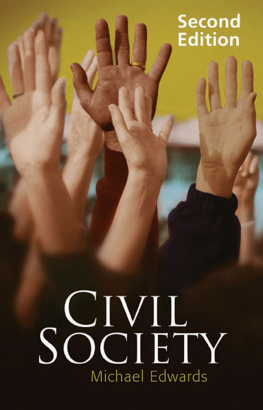Frommers ShortCuts - Paris Nightlife
Here you can read online Frommers ShortCuts - Paris Nightlife full text of the book (entire story) in english for free. Download pdf and epub, get meaning, cover and reviews about this ebook. year: 2011, publisher: Wiley, genre: Politics. Description of the work, (preface) as well as reviews are available. Best literature library LitArk.com created for fans of good reading and offers a wide selection of genres:
Romance novel
Science fiction
Adventure
Detective
Science
History
Home and family
Prose
Art
Politics
Computer
Non-fiction
Religion
Business
Children
Humor
Choose a favorite category and find really read worthwhile books. Enjoy immersion in the world of imagination, feel the emotions of the characters or learn something new for yourself, make an fascinating discovery.
- Book:Paris Nightlife
- Author:
- Publisher:Wiley
- Genre:
- Year:2011
- Rating:3 / 5
- Favourites:Add to favourites
- Your mark:
- 60
- 1
- 2
- 3
- 4
- 5
Paris Nightlife: summary, description and annotation
We offer to read an annotation, description, summary or preface (depends on what the author of the book "Paris Nightlife" wrote himself). If you haven't found the necessary information about the book — write in the comments, we will try to find it.
Frommers ShortCuts give you exactly what you need for your trip to Paris--and no more.
In this ebook, youll get the same candid reviews and insider tips that youll find in all Frommers guides. Plus, weve added planning and background information as well as our signature Best of features.
Search for more Frommers ShortCuts. Mix and match the exact destinations you need for your trip, and create your own Frommers ShortCuts collection.
Paris Nightlife — read online for free the complete book (whole text) full work
Below is the text of the book, divided by pages. System saving the place of the last page read, allows you to conveniently read the book "Paris Nightlife" online for free, without having to search again every time where you left off. Put a bookmark, and you can go to the page where you finished reading at any time.
Font size:
Interval:
Bookmark:

For Cora
My own civil society
Copyright Michael Edwards 2009
The right of Michael Edwards to be identified as Author of this Work has been asserted in accordance with the UK Copyright, Designs and Patents Act 1988.
First published in 2009 by Polity Press
Polity Press
65 Bridge Street
Cambridge CB2 1UR, UK
Polity Press
350 Main Street
Malden, MA 02148, USA
All rights reserved. Except for the quotation of short passages for the purpose of criticism and review, no part of this publication may be reproduced, stored in a retrieval system, or transmitted, in any form or by any means, electronic, mechanical, photocopying, recording or otherwise, without the prior permission of the publisher.
ISBN-13: 978-0-7456-4585-8
ISBN-13: 978-0-7456-4586-5 (pb)
ISBN-13: 978-0-7456-5906-0 (Single-user ebook)
ISBN-13: 978-0-7456-5905-3 (Multi-user ebook)
A catalogue record for this book is available from the British Library.
The publisher has used its best endeavours to ensure that the URLs for external websites referred to in this book are correct and active at the time of going to press. However, the publisher has no responsibility for the websites and can make no guarantee that a site will remain live or that the content is or will remain appropriate.
Every effort has been made to trace all copyright holders, but if any have been inadvertently overlooked the publisher will be pleased to include any necessary credits in any subsequent reprint or edition.
For further information on Polity, visit our website: www.politybooks.com
Preface
When the first edition of this book was produced in 2004, it was reasonable to claim that civil society might be the big idea for the twenty-first century, as my original preface put it. Support for this idea was high across the political spectrum, in many different parts of the world, and among theorists, activists, policy-makers and practitioners alike. For some in the administration of President George W. Bush, for example, the invasion of Iraq was justified in part as an attempt to build civil society in the Middle East as a counterweight to extremism, while, across the Atlantic, Moscows policy placed civil society at the heart of its comeback strategy by developing an officially sponsored NGO infrastructure to destabilize pro-Western governments and regain influence in places like Ukraine, two positions that demonstrate the sheer slipperiness of this concept, or at least the uses to which it has been put by some politicians.
It is probably impossible for any idea to survive this amount of attention, adulation and manipulation, and over the last five years there has been a noticeable move away from some of the exaggerated claims that were being made for civil society in the early 2000s. As one noted scholar puts it, the church of civil society has lost some of its membership and magic. This is surely a good thing, bringing greater rigor to the debate and forcing a more analytical approach to civil societys potential as a vehicle for understanding and changing key elements of our world. I hope that Civil Society has helped to move the debate in this direction in some small ways, as was its intention. Given the amount of new material that has become available in the intervening years, now is a good time to update the original book and its arguments in the light of new developments.
Although there have been some important contributions to civil society theory since 2003, it is the practice of civil society that has been most challenged by political and economic developments in many parts of the world. On the political side, attempts to restrict or close down the space for independent citizen action have arisen as governments from Russia to Brazil, Egypt to Cambodia, and Uganda to the United States have formulated tighter laws, regulations and registration requirements for NGOs and other civic groups. Many of these attempts have been justified by reference to the war on terror and the need to clamp down on support for organizations deemed to be conduits for terrorist funding, but very few cases of such leakage have been successfully prosecuted, and these moves seem motivated by more basic, pre-existing suspicions of civil societys rising influence.
Taken together, the impact of these developments may be severe, not just in targeting specific organizations and constituencies but in creating a broader climate in which certain positions, activities and even dissent in general are seen as increasingly risky fears that are appearing among civil society activists in the US and the UK and not just in Russia, China and other more openly authoritarian contexts.
The second set of challenges have come from the economic arena, and specifically from the increasing encroachment of business and the market into areas traditionally seen as the preserve of civil society (if indeed one sees these institutions as separate). For many years, there has been tension between radical and neo-liberal interpretations of civil society, the former seeing it as the ground from which to challenge the status quo and build new alternatives, and the latter as the service-providing not-for-profit sector necessitated by market failure. Today, philanthrocapitalism the belief that business and the market can solve social problems as well as create an economic surplus is as big an idea as civil society, perhaps even bigger. It remains to be seen whether the global financial crisis of 2008 dampens enthusiasm for this new trend, but, for now, social enterprise, social entrepreneurs, venture philanthropy, corporate social responsibility and creative capitalism occupy a central position in public and political debate.
Civil society is part of this debate, of course, both as a source of positive influence on business and as a potential beneficiary of stronger financial management and market-based strategies for financial sustainability, but there is also skepticism among philanthrocapitalists about the power of collective action, social movements, democratic decision-making, community organizing and the non-commercial values of solidarity, service and cooperation. A society that reduces everything to a market inevitably divides those who can buy from those who cannot, undermining any sense of collective responsibility, and with it, democracy. Will philanthrocapitalism and increased government regulation undermine civil societys transformative potential by reducing the ability or willingness of citizens groups to hold public and private power accountable for its actions, generate alternative ideas and policy positions, push for fundamental changes in the structures of power, and organize collective action on a scale large enough to force through long-term shifts in politics, economics and social relations?
Perhaps, but on a more positive note the last five years have also seen increasing interest in civic agency and new forms of civic organizing (often based around the Internet), expressed through participatory, direct and deliberative democracy. These developments might provide a counterweight to continued privatization and top-down government control. One of the aims of Civil Society was to bring theories of the public sphere back into the civil society debate and push against the widespread tendency to think only in terms of associational life, and many other authors seemed to agree.
I have incorporated additional material on all these themes throughout this revised edition. I have also benefited greatly from the feedback I have received from readers who have used the book in academic courses, public education, public policy-making, and strategic planning for NGOs, foundations and other donor agencies. The threefold division of approaches to associational life, the good society and the public sphere proved very popular and has been retained, though it remains something of an artificial device since each is so connected to the others. Therefore, I have tried to strengthen the synthesis of these different models in chapter 5, Unraveling the Civil Society Puzzle. I have also added major new sections on three subjects that readers saw as gaps or weaknesses in the first edition: civil society in Africa and in the Middle East (significant variants from Western models of associational life and its effects that are explored in chapter 2), and global civil society (in chapter 5), a particularly interesting illustration of why it is both necessary and difficult to link the three approaches to civil society together. Finally, I have updated the case studies, examples and references used throughout.
Font size:
Interval:
Bookmark:
Similar books «Paris Nightlife»
Look at similar books to Paris Nightlife. We have selected literature similar in name and meaning in the hope of providing readers with more options to find new, interesting, not yet read works.
Discussion, reviews of the book Paris Nightlife and just readers' own opinions. Leave your comments, write what you think about the work, its meaning or the main characters. Specify what exactly you liked and what you didn't like, and why you think so.



















